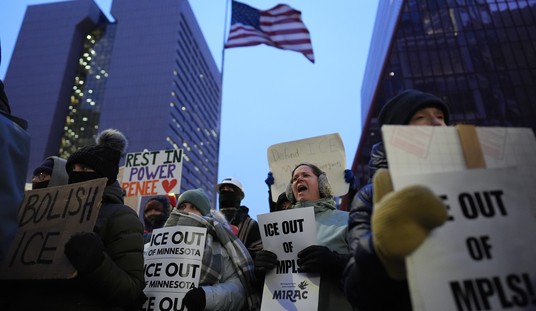In 1925, President Calvin Coolidge delivered a speech to the American Society of Newspaper Editors in which he uttered the famous phrase, “the chief business of the American people is business.”
Contrary to popular opinion, Coolidge did not mean that Americans are primarily concerned with making money and accruing material possessions. Rather, he believed that Americans “are profoundly concerned with producing, buying, selling, investing and prospering in the world.”
Moreover, Coolidge stated that, “Wealth is the product of industry, ambition, character and untiring effort. In all experience, the accumulation of wealth means the multiplication of schools, the increase of knowledge, the dissemination of intelligence, the encouragement of science, the broadening of outlook, the expansion of liberties, the widening of culture.”
Conversely, he explained that when productivity declines and wealth accumulation is obstructed, “an irreparable decay begins.”
In other words, Coolidge was celebrating the inherent dignity and societal benefits of entrepreneurship and successful business enterprises while warning that economic stagnation undermines the very ethos of the American Dream and is detrimental to domestic tranquility.
During the Biden years, Americans have suffered through troubling economic times because the federal government has hindered wealth creation via profligate government spending, overregulation, wealth redistribution, and imprudent energy policy.
However, the good news is that the anti-business posture of the federal government will end abruptly on January 20, 2025 when President-elect Donald Trump returns the White House.
Recommended
Like Coolidge, Trump understands that big government is bad for business. In the early 1920s, when Coolidge assumed the Oval Office after the death of President Warren G. Harding, the United States was still mired in economic turmoil due to the vast expansion of the federal government under President Woodrow Wilson’s Progressive policies and participation in World War I.
Coolidge rectified this situation by slashing government spending, reducing taxes, and cutting massive amounts of red tape put in place during Wilson’s administration. In short, this produced one of the biggest booms in American history: The Roaring Twenties.
Similarly, Trump faces major economic headwinds due to Biden’s anti-business agenda and out-of-control spending.
To be fair, American businesses have suffered greatly since the COVID-19 pandemic. In particular, small- and medium-sized businesses have had a tough time in the economic environment during and after the pandemic. Stubborn inflation, high interest rates, rising energy costs, and a deluge of draconian regulations have only made matters worse for those businesses that have somehow stayed afloat during this perilous period.
But, as Bob Dylan put it, the times they are a-changing.
In a little more than a month from now, the Trump administration will assume power and enact an economic reform agenda that is long overdue.
Trump’s economic message throughout the campaign focused on commonsense policies that will spur the private sector, foster innovation, and reward businesses that hire American workers to build their products and services.
Much like Coolidge, Trump will goose private industry by reducing burdensome regulations and taxes, which will likely result in the creation of new businesses and good-paying American jobs.
Trump’s plan for a renaissance in U.S. energy production, what he calls American energy dominance, will also be a boon for businesses and American families. Tragically, the Biden administration’s net zero folly has led to substantial increases in the price of energy across the board. In fact, under Biden’s illogical green energy transition, the average American household has directly paid at least $2,548 in higher direct energy costs. What’s more, the sky-high cost of energy also affects all businesses and has been a primary driver of the persistent inflation that has plagued the United States over the past four years.
Perhaps most importantly, in terms of rejuvenating the private sector and elevating the overall business climate, Trump is taking a page out of Coolidge’s playbook by shrinking the size and scope of the federal government.
When Harding and Coolidge campaigned in 1920, their theme was a “return to normalcy,” which included making substantial cuts to an oversized and inefficient federal government following the Great War. To carry out this monumental task, Coolidge relied on businessman Andrew Mellon, Harding’s pick for secretary of the Treasury.
Trump, too, will inherit a federal government that must be brought down to size. To achieve this pressing mission, he has enlisted business icons Elon Musk and Vivek Ramaswamy to lead the Department of Government Efficiency.
As America enters the final days of the Biden administration, there are ample reasons for optimism. This is especially true for business owners and entrepreneurs, who will thrive under Trump’s pro-business policies.
Toward the end of his speech before the nation’s newspaper editors nearly a century ago, Coolidge reminded the audience that, “The chief ideal of the American people is idealism.” Although that phrase has been somewhat overlooked, I think it rings truer today than ever given the outcome of the 2024 election and what lies ahead.
Chris Talgo (ctalgo@heartland.org) is editorial director at The Heartland Institute.

























Join the conversation as a VIP Member